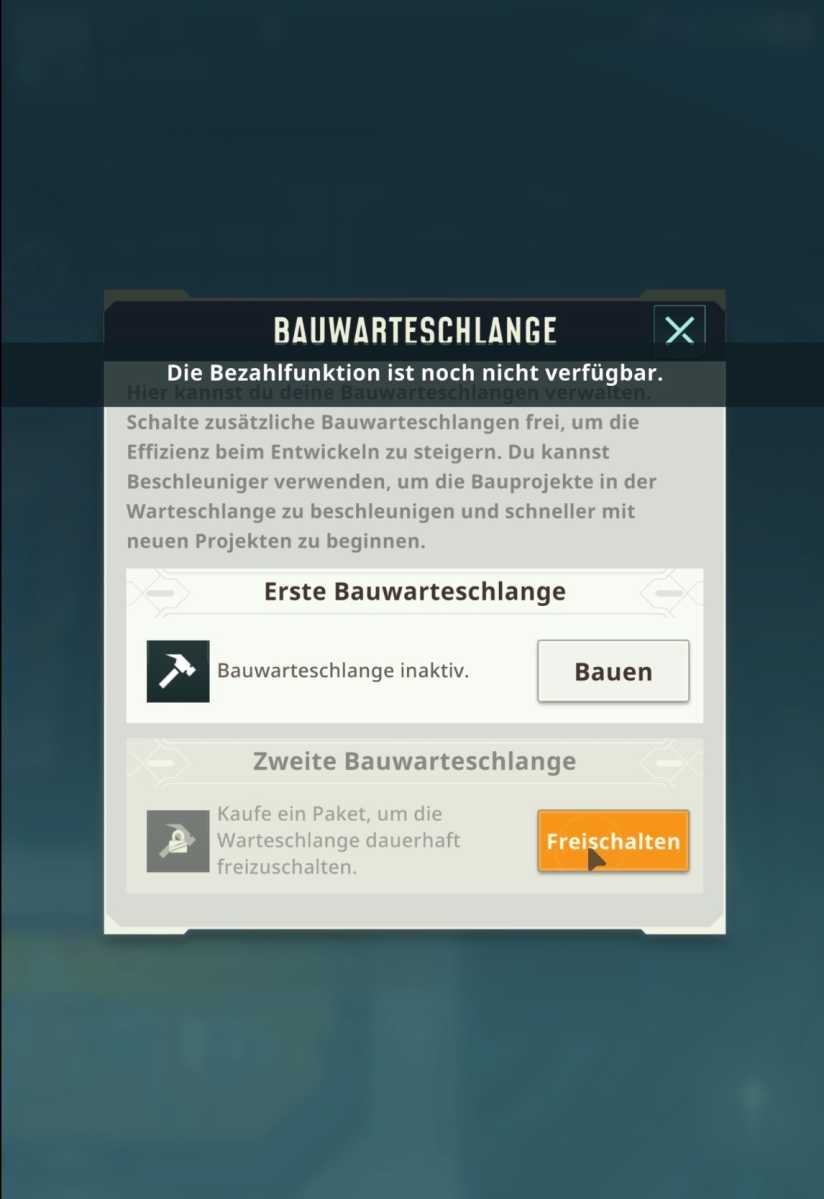Foundation: Galactic Frontier review: TV-inspired iPhone game fails in so many ways
Description
At a glance
Expert's Rating
Pros
- Technically well realized
- Motivating game concept
Cons
- Only loosely based on Foundation
- In-game purchases everywhere
Our Verdict
An epic name, a big logo, and then a routine free-to-play game with aggressive monetization. Apple’s partnership with FunPlus raises questions: Why tie a top brand to the very business model that Apple Arcade is supposed to compete against?
Best Prices Today: Foundation Galactic Frontier
Product
Price
Price comparison from Backmarket
Sometimes the name bears more weight than the content. This is doubly true for the iPhone game Foundation: Galactic Frontier (FGF). It plays off an epic template: Isaac Asimov’s Foundation cycle, one of the most important science fiction sagas of all time. And there’s another big name that flashes up when you start the game: the Apple TV logo.
When you see these two giants, you expect something big, epic, perhaps even revolutionary. What you get instead is a classic mobile construction game, like dozens of others, only with a thin coat of Foundation.
The game’s first impression is quite impressive. The trailers promise an immersive sci-fi experience, the graphics appear clean at first glance, and the Apple TV branding suggests a certain quality assurance. You are thrown into a world that speaks of the collapse of the empire, psychohistory, and brave traders who must find their way in the chaos. Sectors need to be explored, ships built, and heroes recruited. It all sounds like a real adventure.
But after a short time, an unpleasant familiarity sets in. Anyone who has ever played a FunPlus game will immediately recognise the pattern: base building with a timer, collecting resources, fleet management, repetitive quests, and an omnipresent feeling that you always have something to d but only if you are prepared to wait or pay.
<figure class="wp-block-embed is-type-video is-provider-youtube wp-block-embed-youtube wp-embed-aspect-16-9 wp-has-aspect-ratio">
A thin veneer for a masterpiece
The Foundation licence is the game’s biggest lure. You meet familiar characters such as Hari Seldon, and the story tells of the Trader Era, the collapse of the empire, and the Seldon plan. The problem is simple: the psycho-historical theories that make Asimov’s work so unique degenerate into loose accessories here. The dialogue is often generic, the missions are rarely really exciting, and the plot feels as if a standard sci-fi story was taken and a few Foundation names were simply sprinkled on top.
It’s not the depth you would expect from this template, but rather a shallow background noise. That’s a shame, because Asimov’s universe offers so much potential for complex storytelling. Instead, the glorious licence serves primarily to attract fans, who then find a routine mobile game. The psycho-historical tension–the real essence of Asimov–is completely missing.
Gameplay: Tried, tested, and tedious recipe
Mechanically, FGF is a prime example of the strategy-building games that have made FunPlus so successful. In base building, you build your spaceship, store resources, and wait for upgrades. Fleet management works similarly: assemble fleets, assign heroes, pay attention to synergies between the different ship types. There is also the obligatory gacha element, numerous characters to collect and level up, all of which you naturally want to collect. Ultimately, like Sea of Conquest, another title from the studio, only now in space instead of pirate ships.
A galactic map invites you to explore, peppered with events, story missions, and PvP zones. The battles are visually appealing, but are often rather automatic, with little direct player influence. Tactical decisions tend to be made in advance through fleet composition. It all works, no question. But it’s also nothing new. Anyone hoping to find a fresh interpretation of strategy or even an innovative realisation of Asimov’s ideas will be disappointed. The game is designed to bind players to daily logins, events, and monetization in the long term, maximizing dependency, not enjoyment.
FGF runs very stably on the iPhone, even if some effects can cause minor stutters. The game runs exclusively in portrait format, which is interesting and new and not necessarily annoying on the iPhone. The biggest technical annoyance, however, is the lack of iPad optimization. On an iPad, the app is displayed upright, and there are large margins on the sides. For a game that thrives on overview and strategy, this is a missed opportunity and considerably reduces the fun of playing on Apple’s larger tablets. The UI/UX can feel cluttered in places, with too many pop-ups, icons, and offers flooding the screen.
Monetization: The real empire behind it
This is where the FunpPus DNA comes into its own. FGF is free-to-play, but the way to really progress or keep up with other players is quickly via the in-app shop. It starts after a few hours: Building lines get long, energy becomes scarce, new heroes or ships can only be obtained with luck–and a lot of grinding–or by spending real money. The game offers countless “packs”, time-limited offers, VIP levels, and aggressive cross-promotions.
If you want to survive in PvP battles or excel in events, you often have to dig deep into your pockets. The balance is clearly shifted in favor of the publisher. It’s not pay-to-win in the most blatant sense, but definitely pay-to-progress, where the fun depends heavily on how much you’re willing to invest, or how much patience you have for endless timers. The reality is brutally honest: those who don’t pay will always be a few steps behind those who do.
- <figure>
 <figcaption class="wp-block-jetpack-slideshow_caption gallery-caption">
<figcaption class="wp-block-jetpack-slideshow_caption gallery-caption">Screenshot
</figcaption></figure> - <figure>
 <figcaption class="wp-block-jetpack-slideshow_caption gallery-cap
<figcaption class="wp-block-jetpack-slideshow_caption gallery-cap






